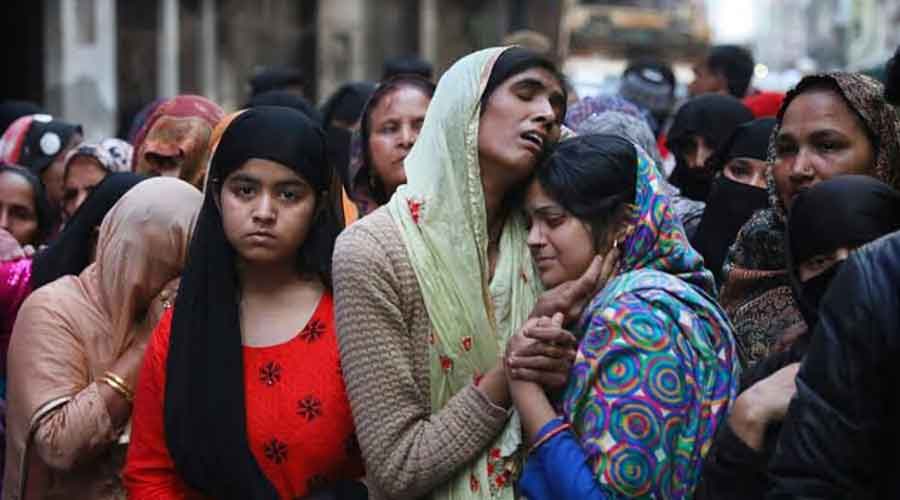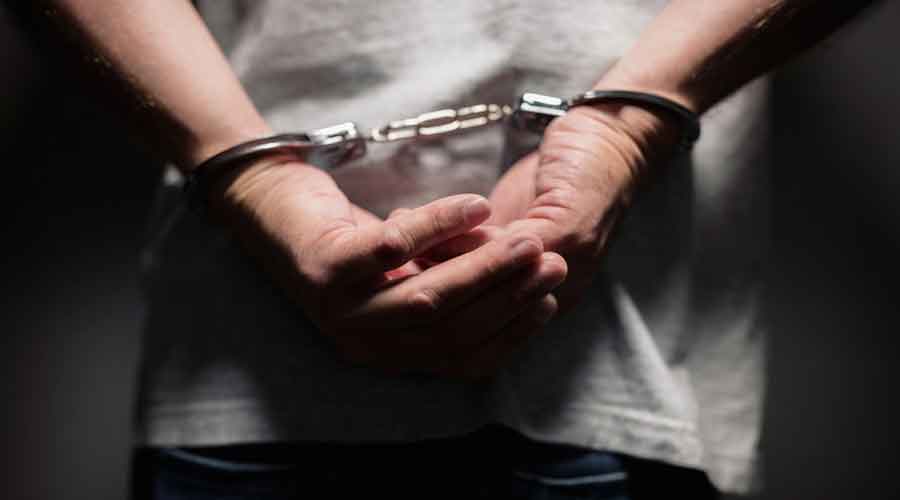A group of citizens, including former Union home secretary G.K. Pillai and retired ambassador Deb Mukharji, has accused Delhi police of misconduct and bias during and after the Delhi communal violence of February 2020 that claimed at least 53 lives.
They have also said the Delhi government “failed miserably in providing adequate relief”.
The report, based on the testimonies of North East Delhi residents, social workers and lawyers, echoes past reports by the Delhi Minorities Commission and the CPM.
Some of the findings by the People’s Tribunal — which also included historian Mridula Mukherjee, journalist Pamela Philipose and former Planning Commission member Syeda Hameed — on the police’s role are:
n “In spite of adequate intelligence and warning indicators of heightened tensions and threats, the Delhi police failed to take adequate measures to prevent the spreading of the riots. Once the violence broke out, the Delhi police, along with acts of omission and commission, allowed the riots to continue for a longer period. Taking no action against the mobs perpetrating the violence, and letting victims fend for themselves more often than not, this only resulted in larger casualties, more suffering and harassment and greater property damages.”
n The police were guilty of misconduct by “refusing to arrest and take action against ‘powerful’ people implicated in inciting violence, corruption and attempts at extortion; misusing of technology to frame people, to biased and unjust chargesheets”.
n “There has been a lack of proper and transparent investigation, and a biased approach leading to lack of credibility in the overall investigative process.”
In a written reply to the Lok Sabha last year, deputy home minister Nityanand Rai had said: “During violence in the North East part of Delhi, Delhi police acted swiftly in an impartial and fair manner…. Sincere, dedicated and incessant efforts made by Delhi police brought the riotous situation to normalcy within a short span of time and also prevented the riots from spreading across to other areas of Delhi/NCR.”
The citizen group’s main findings on the state government’s role include inadequate compensations, rejection of valid compensation claims, and failure to prevent harassment, bridge the communal divide or provide legal support to the victims.
The government is yet to respond to the report, released on Saturday. A Delhi Assembly committee had last year reported that Rs 26.09 crore was paid as riot compensation.
“(Among) the organs of the state — health, police and administration — none were willing to do anything,” historian Mukherjee said.
“Amitabh Bachchan’s home in South Delhi reportedly sold at Rs 23 crore recently. Yet for the whole riot, only Rs 26 crore was paid. One businessman who claims a loss of Rs 35 lakh was paid Rs 12,500 — which is lower than the monthly minimum wage for unskilled workers.”
The report reiterates a recommendation made by several civil society groups that have worked on the riots and its victims — that for a judicial probe by a retired Supreme Court judge.
The other recommendations include the creation of an empowered group of the state government for compensation, rebuilding of job opportunities, free medical care for the victims, and bridge courses for school dropouts.
The report says: “A sharp rise in the use of predictive policing including facial recognition technology which was used by the Delhi police to round up those they framed as instigators of violence is based on a fallacious assumption that the algorithms ensured bias-free investigations…. The use of such technology must come with a guarantee of a proper regulatory framework.”
Pillai said: “The Delhi police have not learnt anything from the 1984 riots. This is partly because accountability was not fixed, acts of commission and omission by the police and others were ignored…. The other aspect, which was significantly brought out by riot victims from all communities, was the abject failure of the Delhi government in the post-riot situation. Two years after the riots, there are still people who have filed claims but not been given compensation. They have survived on assistance from NGOs, civil society and so on.”
Ex-ambassador Mukharji said: “There was a refusal among people in authority to accept the kind of agitation (against the new citizenship matrix) that had been going on, which was symbolised by Shaheen Bagh. The only people willing to face authorities in defence of their rights and the Constitution were Muslim women…. What happened in 2020 and after that had the complicity of the establishment in all that went wrong.”
The tribunal was organised by the CPI-backed National Federation of Indian Women, CPM-backed All India Democratic Women’s Association, ex-civil servants’ forum Constitutional Conduct Group, human rights groups such as the People’s Union of Civil Liberties, United Against Hate and the Karwan-e-Mohabbat led by former bureaucrat Harsh Mander.
Umar Khalid and Khalid Saifi, members of United Against Hate, are in prison facing trial for the riots that have been blamed on the anti-citizenship-act protests in which they participated.












